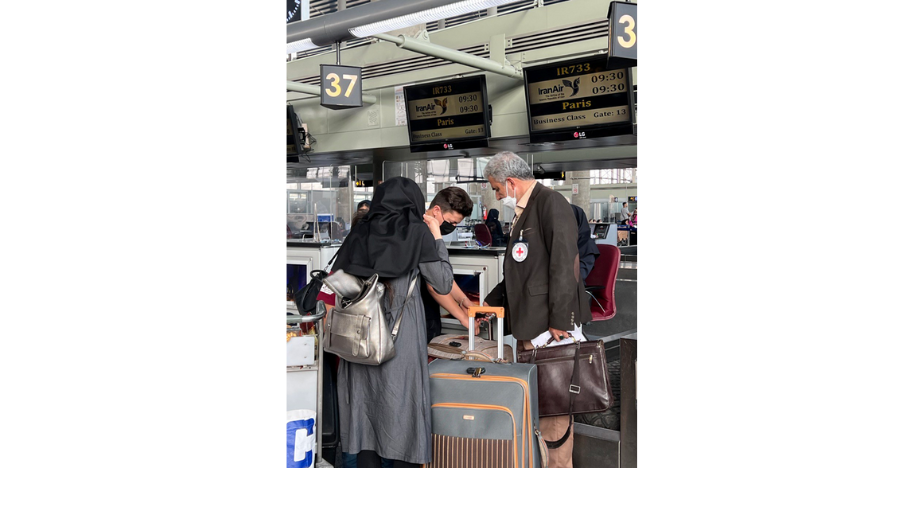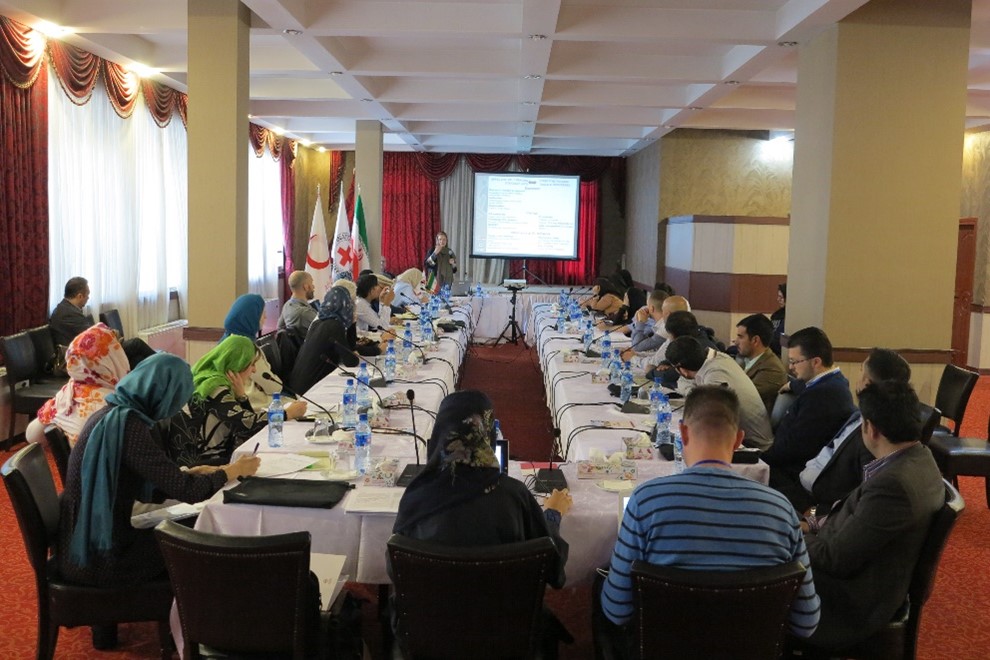Protection of family Links (PFL) practice in Iran has a long history that dates to the Iran-Iraq conflict, where the Iranian Red Crescent Society (IRCS) and ICRC were involved in exchanging Family Messages between prisoners of war and their families. Later, such activities were also provided to the migrant community, who had lost family members mainly due to migration, conflict, or a mixture of both circumstances and disaster.
The IRCS is the main service provider in Iran and covers the entire country through PFL focal points across the country. The ICRC mostly provides technical support when and where it is needed:
- Working on prevention of separation through awareness raising and producing audio-visual material for the affected population. Such prevention activities are carried out after careful assessment of needs.
- Organizing capacity-building workshops, to increase IRCS staff’s knowledge on minimum protection approaches, PFL activities, and technical aspects of service delivery, particularly in the context of emergency and migration.
- Supporting the IRCS in the provision of tracing services to all persons, regardless of nationality, race, and legal status.
- Facilitating family reunifications (with the support of IRCS); assisting unaccompanied and separated children, or vulnerable families to be reunited with their loved ones who have obtained legal status in a third country.
The Family Links Network provides PFL services solely in the following contexts:
- Armed conflict or other situations of violence
- Natural or man-made disasters
- Migration
- Other humanitarian situations
PFL is the responsibility of Red Cross Red Crescent (RCRC) Movement. The family links network, comprised of all the members of the Movement, enables the RCRC network to use its resources and collaborate with other members in delivering PFL services.

Afghan migrants accompanied by ICRC in the airport to join their families abroad, Tehran airport, 2022

Awareness raising through toys for migrant children – Golshahr, Mashhad 2019

Joint PFL cooperation meeting of ICRC, Turkish and Iranian Red Crescent Society, Ankara, 2019

Regional Restoring Family Links Meeting, Tehran, 2016

